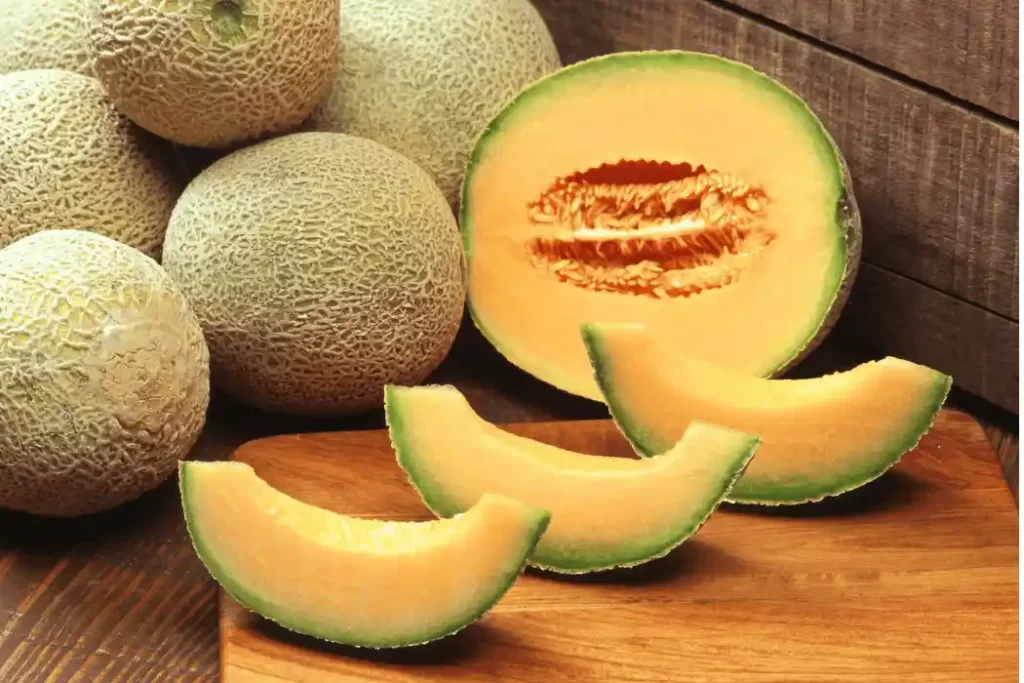If you’re looking for a juicy and flavorful fruit to tantalize your taste buds while providing a host of health benefits, look no further than muskmelon. This delightful fruit, also known as cantaloupe, is a summer favorite that offers a refreshing burst of flavor and a plethora of nutrients. In this article, we’ll dive deep into the world of muskmelons, exploring their origin, nutritional value, culinary uses, and more.
Muskmelon, scientifically known as Cucumis melo, belongs to the gourd family and is cherished worldwide for its sweet aroma and juicy flesh. With its characteristic netted rind and vibrant orange hue, muskmelon is not only a treat for the palate but also a source of various essential nutrients. A favorite during the summer months, muskmelon quenching delight offers not only a burst of refreshment but also serves as a source of knowledge about its nutritional benefits.
Origin and Varieties of Muskmelon
Believed to have originated in India, muskmelons have a rich history dating back to ancient times. Over the centuries, different regions have cultivated various muskmelon varieties, each with its distinct flavor and appearance. Some well-known types include Cantaloupe, Honeydew, and Galia.
Nutritional Profile of Muskmelon
Muskmelons are a nutritional powerhouse, packed with vitamins and minerals such as Vitamin A, Vitamin C, Potassium, and Folate. These nutrients contribute to overall health, supporting vision, immune function, and more.

Health Benefits of Muskmelon
1. Boosts Hydration
With its high water content, muskmelon is an excellent choice to stay hydrated, especially during scorching summer months.
2. Rich in Antioxidants
Loaded with antioxidants like Vitamin C and beta-carotene, muskmelons help combat oxidative stress and protect cells from damage.
3. Supports Digestive Health
Muskmelons contain dietary fiber, aiding digestion and promoting a healthy gut.
4. Enhances Immune System
Vitamin C in muskmelons boosts the immune system, assisting the body in fighting off infections.
5. Promotes Skin Health
The presence of Vitamin A supports skin health, contributing to a radiant complexion.
Incorporating Muskmelon into Your Diet
1. Fresh and Simple Slices
Enjoy muskmelon as a standalone snack by slicing it into convenient, bite-sized pieces.
2. Delectable Smoothies
Blend muskmelon with yogurt and a touch of honey for a refreshing and nutritious smoothie.
3. Fruit Salads with a Twist
Elevate your fruit salad game by adding muskmelon chunks to create a medley of flavors.
Selecting and Storing Muskmelons
Choose a ripe muskmelon by smelling its sweet aroma near the stem end. Store it at room temperature until fully ripe, then refrigerate for extended freshness.
Cultivation and Harvesting
Muskmelons thrive in warm climates with well-drained soil. They require ample sunlight and regular watering to develop their signature sweetness. The fruit is typically ready for harvest when it detaches easily from the stem and emits a pleasant aroma.
Fun Facts About Muskmelons
- Muskmelons are a member of the Cucurbitaceae family, making them related to cucumbers, pumpkins, and squashes.
- The name “cantaloupe” likely originated from the Italian town of Cantalupo, known for cultivating this fruit in the papal gardens.
Conclusion
The delightful muskmelon stands as the perfect embodiment of a summer snack, offering both a refreshing quench and a nutritional delight. With its juicy flesh, sweet aroma, and an array of vitamins and minerals, muskmelon proves to be a stellar choice for those hot days when a burst of hydration and flavor is needed most. Whether enjoyed in simple slices, blended into smoothies, or added to vibrant fruit salads, muskmelon not only tantalizes the taste buds but also nourishes the body. So, as the sun shines brightly and temperatures rise, let the juicy allure of muskmelon be your go-to snack, elevating your summer experience one delicious bite at a time.


